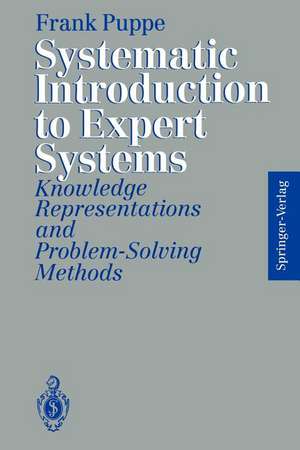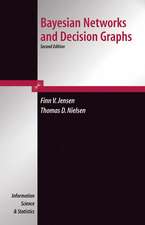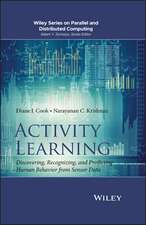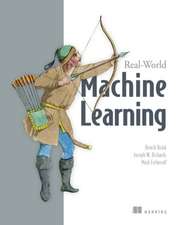Systematic Introduction to Expert Systems: Knowledge Representations and Problem-Solving Methods
Autor Frank Puppeen Limba Engleză Paperback – 15 noi 2011
Preț: 705.87 lei
Preț vechi: 882.34 lei
-20% Nou
Puncte Express: 1059
Preț estimativ în valută:
135.08€ • 146.68$ • 113.47£
135.08€ • 146.68$ • 113.47£
Carte tipărită la comandă
Livrare economică 22 aprilie-06 mai
Preluare comenzi: 021 569.72.76
Specificații
ISBN-13: 9783642779732
ISBN-10: 3642779735
Pagini: 368
Ilustrații: XII, 352 p.
Dimensiuni: 155 x 235 x 19 mm
Greutate: 0.51 kg
Ediția:Softcover reprint of the original 1st ed. 1993
Editura: Springer Berlin, Heidelberg
Colecția Springer
Locul publicării:Berlin, Heidelberg, Germany
ISBN-10: 3642779735
Pagini: 368
Ilustrații: XII, 352 p.
Dimensiuni: 155 x 235 x 19 mm
Greutate: 0.51 kg
Ediția:Softcover reprint of the original 1st ed. 1993
Editura: Springer Berlin, Heidelberg
Colecția Springer
Locul publicării:Berlin, Heidelberg, Germany
Public țintă
Professional/practitionerCuprins
I Introduction.- 1 Characterization and History of Expert Systems.- 2 Programming Languages and Expert System Tools.- 3 Use and Usability of Expert Systems.- II Basic Techniques of Knowledge Representation.- 4 Logic.- 5 Rules.- 6 Objects/Frames.- 7 Constraints.- 8 Probabilistic Reasoning.- 9 Non-Monotonic Reasoning.- 10 Temporal Reasoning.- III Problem Classes and Problem-Solving Methods.- 11 Previous Approaches to Problem Classification.- 12 Principles of Problem-Solving Methods.- Classification.- 13 Survey of the Problem-Solving Type Classification.- 14 Simple Classification.- 15 Heuristic Classification.- 16 Heuristic Classification: Additional Mechanisms.- 17 Set-Covering Classification.- 18 Functional Classification.- 19 Statistical Classification.- 20 Case-Comparing Classification.- V Construction.- 21 Review of the Problem-Solving Type Construction.- 22 Skeletal Construction.- 23 Propose and Revise.- 24 Propose and Exchange.- 25 Least-Commitment Strategy.- 26 Model-Based Planning.- 27 Case-Comparing Construction.- 28 Partial Integration of Construction Methods.- VI Simulation.- 29 Review of the Problem-Solving Type Simulation.- 30 Single-Phase Simulation.- 31 Numerical Multiple-Phase Simulation.- 32 Qualitative Multiple-Phase Simulation.- VII Integration of Problem-Solving Methods.- 33 Basic Ideas for the Integration of Problem-Solving Methods.- 34 Integration of Classification Methods.- 35 Aspects of the Overall Integration.- Appendix: Survey of Knowledge Representation Formalisms.- References.- System Index.
















